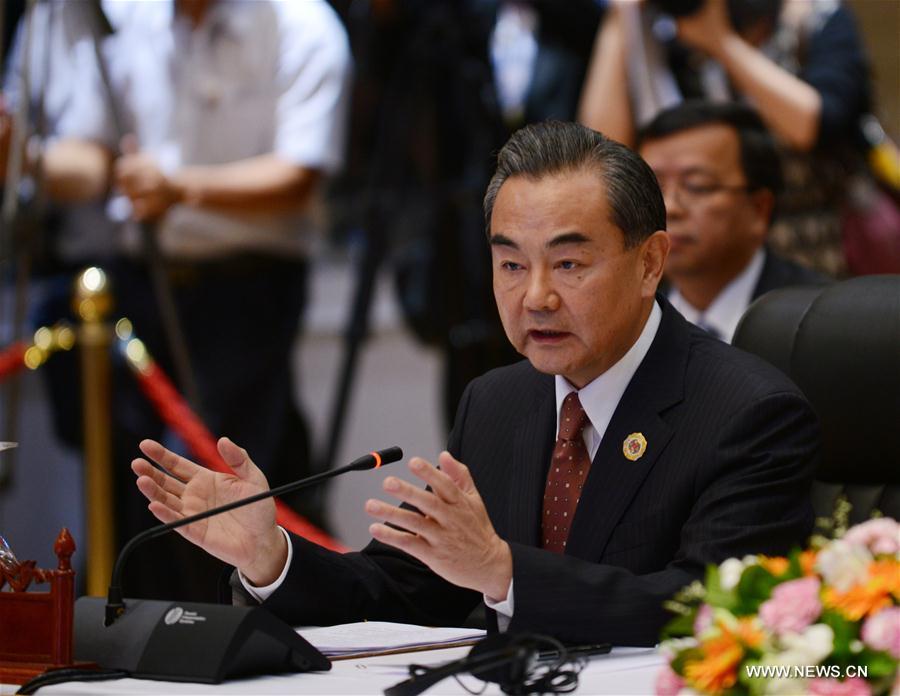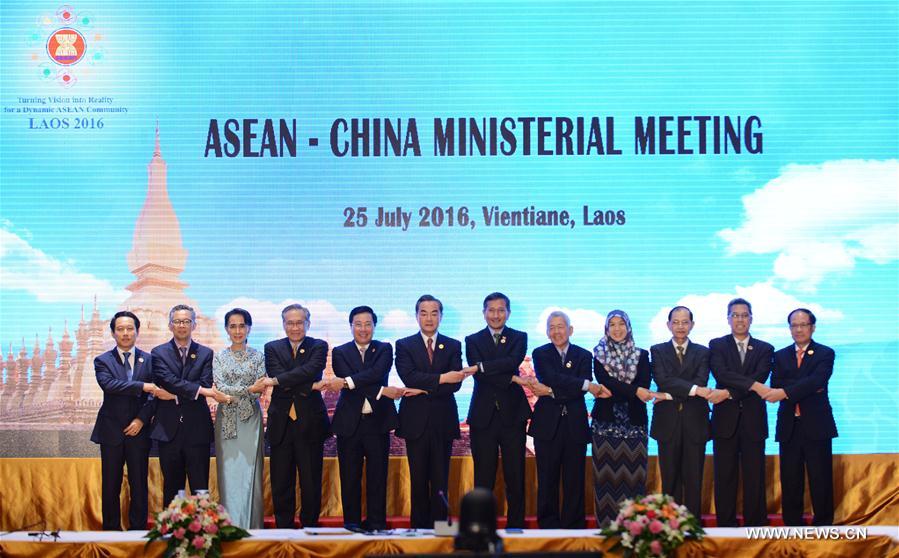Full coverage: The South China Sea Issue
China's foreign minister has had busy 24 hours in the capital of Laos, with a series of bilateral meetings, culminating in the ASEAN Plus China meeting earlier Monday. Much of the focus was expected to be on the South China Sea issue. And it certainly featured. But in the end, both China and ASEAN seemed eager to focus on strengthening their relations moving forward rather than to harm them.

Chinese Foreign Minister Wang Yi attends the meeting with his counterparts from 10 members of the Association of Southeast Asian Nations (ASEAN) in Vientiane, capital of Laos, on July 25, 2016. China and ASEAN reaffirmed their efforts on Monday to "promote peace, stability, mutual trust and confidence" in the South China Sea. (Xinhua/Liu Yun)
A quarter of a century after China become a dialogue partner with ASEAN, it’s a time of heightened tension due to the South China Sea territorial disputes. But in many ways, it’s also a time of unparalleled closeness in ties and cooperation, between China and ASEAN…and of tremendous opportunity.
"At this moment of the 25th anniversary of the establishment of friendly bi-lateral relations, the China-ASEAN relationship stands at a new starting point and also faces new challenges," China's foreign minister Wang Yi said.
Chinese foreign minister Wang Yi said that about 80 per cent of the discussion at the ASEAN plus China meeting focussed on the positives – strengthening and deepening cooperation across a range of areas…economic, strategic, social.
And he said the 20 per cent of the discussion on the South China Sea issue was entirely amicable.
"We all believe that the disputes over some of the islets and reefs in the South China Sea are not between China and ASEAN, and should not be used to define relations between China and ASEAN. Meanwhile, we should not allow these specific issues to affect the advancement of overall cooperation between China and ASEAN, nor should it affect the overall relationship between China and ASEAN," Wang said.
After struggling for two days to reach a position they could all live with, ASEAN ministers also seemed to come down on the side of diplomacy versus confrontation.
A joint communique released by the ASEAN and China excluded any reference to the so-called arbitration ruling from the Hague, and while expressing concerns about unspecified recent developments, talked about the need to find peaceful solutions to the issue in accordance with international law.
Both ASEAN and China agreed to fast track progress on a code of conduct for the sea…clearing the way, they hope, for another 25 years of deepening cooperation and shared benefits.

Chinese Foreign Minister Wang Yi (6th L) and other attendees of the meeting between Chinese Foreign Minister Wang Yi and his counterparts from 10 members of the Association of Southeast Asian Nations (ASEAN) pose for photos in Vientiane, capital of Laos, on July 25, 2016. China and ASEAN reaffirmed their efforts on Monday to "promote peace, stability, mutual trust and confidence" in the South China Sea. (Xinhua/Liu Yun)















